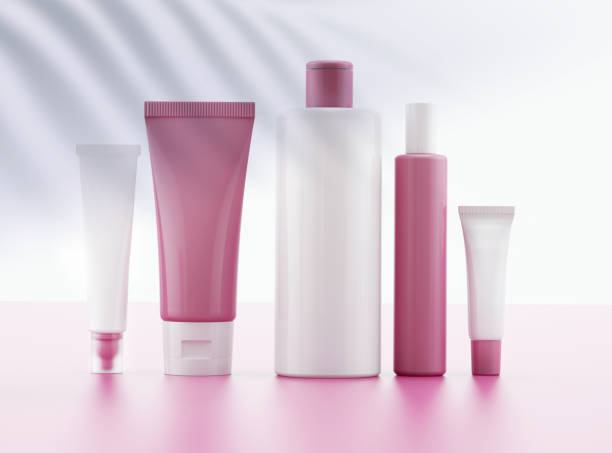Sunscreen is not just another product for skin care. Sunscreen is a powerful shield to protect your skin against the damaging effects of the sun’s radiation. Sunlight emits UVA and UVB radiations that can seriously affect your skin. It can be hard to decide which sunscreen is right for you. There are two main types of sunscreens available today: chemical and mineral.
Both are excellent and protect against the sun. However, knowing their fundamental differences is essential to determine which is best. We’ll compare mineral sunscreen vs. chemical sunscreen and the benefits of each.
What is Mineral Sunscreen
Mineral sunscreen is also known as physical sunscreen. It contains UV-blocking agents such as titanium dioxide or zinc oxide. Mineral SPFs contain zinc oxide and titanium dioxide, which sit on the skin’s surface and reflect, scatter, and block harmful ultraviolet radiation. Mineral sunscreens also protect against UVA and UVB radiation. Some mineral sunscreens, such as the Daily Reflector(tm) and Mineral Face Sunscreen, go above and beyond to protect against blue light, which can cause wrinkles and hyperpigmentation.
Do sunscreens help acne? Sunscreens that are less irritating and do not contain harmful chemicals are the best for sensitive skin. They are less likely to cause allergic reactions or irritation, so they’re better for acne-prone skin or those easily irritated.
What is Chemical Sunscreen
Chemical sunscreens use a combination of chemical compounds such as avobenzone, octinoxate, and oxybenzone. These chemicals react with UV rays, transforming them into less harmful energy like heat. These chemicals penetrate the skin to absorb UV radiation and prevent damage. Some people are sensitive to the chemical ingredients in sunscreens and may experience irritation or adverse effects.
Chemical sunscreens have different benefits, which makes them popular.
Lightweight, Elegant, and Cosmetically Elegant: Chemical sunblocks are lighter in texture and easier to incorporate into skincare and makeup routines. These sunscreens are popular because they leave a transparent finish.
Less white cast One concern about mineral sunscreens, particularly for people with darker skin tones, is that they can leave a white cast. Chemical sunscreens are more transparent and blend seamlessly with the skin without leaving any white form. They are, therefore, ideal for people with darker skin tones.
Faster activation: The ability of these products to absorb UV rays and convert them into heat allows speedier activation. This provides reliable sun protection in just 20 minutes after application.
Broad-Spectrum Protection: Chemical sunblocks offer broad-spectrum protection, which protects against UVA and UVB radiation.
Compare Mineral and Chemical Sunscreens
Your preferences, skin type, and concerns will determine whether you choose chemical or mineral sunscreens. Each class has unique properties, and both effectively protect against UV radiation. It is best to compare the two to find the one that fits you.
Ingredients & Formulation: The main difference between chemical and mineral sunscreens is their active ingredients. Chemical sunscreens absorb UV radiation using organic compounds, while mineral sunscreens use physical blocks.
Effectiveness against Harmful UV Rays Both types protect from harmful UVA and UVB radiation, but chemical sunscreens take about 20 minutes before they become effective.
Reef-Safe Options and Environmental Impact: Mineral sunblocks are considered more eco-friendly since their ingredients are less likely than other sunscreens to harm marine life or coral reefs. Mineral sunscreens with “reef safe” labels are eco-friendly.
Suitability For Sensitive or Acne Prone Skin: Mineral sunblocks are recommended to individuals with sensitive skin and acne-prone skin because they are less irritating. Some chemical sunscreens, however, are non-comedogenic and suitable for acne-prone or sensitive skin.
Understanding Sun Protection Factor (SPF)
SPF (Sun Protection Factor) is crucial when selecting a sunscreen. SPF is a measure of the protection that a sunscreen offers against UVB radiation, which causes sunburn. SPF values are a measure of security. The higher the SPF, the better. It’s important to note that SPF only protects against UVB, not UVA rays.
Broad-spectrum sunscreens offer protection from both UVA and UVB radiation. UVA rays cause premature skin aging, while UVB rays are primarily responsible for sunburn. Use broad-spectrum sunscreen to protect your skin against both types of radiation and reduce the risk of skin aging and sunburn.
How to choose the best sunblock
The right sunscreen will protect your skin against harmful UV rays and prevent skin damage. If you choose a chemical or mineral sunscreen, prioritize broad-spectrum protection. Reapply the sunscreen regularly to ensure maximum effectiveness. When selecting a sunscreen, always consider your skin type. If you want complete sun protection after applying makeup, consider using an SPF spray like the UncompliKated 50 Setting Spray.
You can protect your skin by selecting the right sunscreen. If you are wondering how much sunblock to apply to your face, don’t worry! You can use our comprehensive guide to determine the right amount of sunscreen for maximum sun protection. Enjoy the sun confidently, knowing you’ve chosen the right sunscreen!

